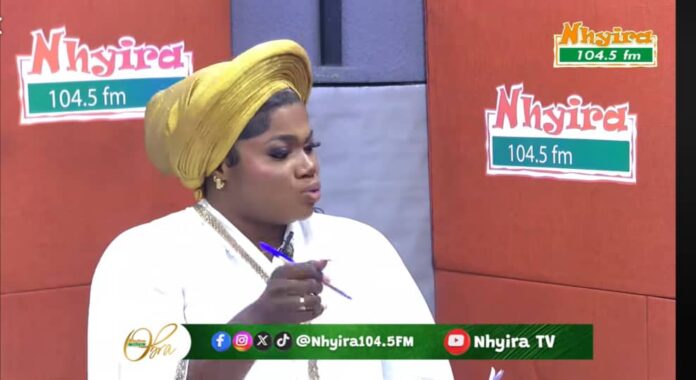Nhyira FM’s Obra Show has revealed a disturbing trend among teenage girls and young women engaging in multiple sexual relationships while pregnant.
Producers of the advovacy program, in reviewing cases received during the first quarter of 2025, observed that close to 80% of reported issues were paternity disputes that required DNA testing to resolve.
Most of these cases involved young women accusing two or more men as possible fathers of their children, ultimately leaving many children fatherless and families in disarray.
Among the many cases reviewed, three stood out due to their complexity and emotional weight.
In one instance, Esi Nyamekye’s teenage daughter from Ejisu, now a young mother, initially accused a man of fathering her child.
However, when DNA testing proved otherwise, she named three additional men as potential fathers, all of whom are now undergoing further testing. Her shifting claims have left both her family and community in disbelief.
Another case from Kasoa in the Central Region, involved Justina Bafar, who, after separating from her husband, entered a new relationship while already pregnant.
Her new partner accepted responsibility for the unborn twins, believing them to be his. However, legal and biological evidence obtained after delivery revealed he was not the father.
Justina later returned to her estranged husband, who now refuses to accept responsibility for the children.
A third disturbing case came from Nahinso near Kumasi, where 16-year-old Florence Osei’s mother alleged that a local pastor had impregnated her daughter and supported her throughout the pregnancy. However, a DNA test cleared the clergyman of paternity.
Her daughter, who claimed to be a virgin and accused the pastor of rape, later named another man, who was also cleared after a second test.
The pastor’s wife, visibly upset, expressed frustration over the emotional and social toll the accusations had taken on her family.
These real-life stories prompted a sobering reflection by the show’s host, Ohemaa Benewaa, who challenged listeners and panelists with pointed questions: “Why do some young pregnant women continue sleeping with other men—even when they know they’re carrying life inside them? If your girlfriend or wife got pregnant, then named three other men as possible fathers—what would you do?”
A panel member of the show, Gifty Donkor, popularly known as Big Mama, remarked that “some parents push their children into this act by not providing for them. Some of them blame their problems on poverty, but I know people whose children were well raised and have made it big in life, even though they were poor.”
Reacting to the growing trend, Rev. Degraft Addae, a panel member, noted that “Ghanaian culture frowns on a pregnant woman sleeping with another man besides the one responsible for the pregnancy, but children of today feel they know everything. Meanwhile, it’s a curse on the generation.”
The revelations triggered a wave of reactions from phone-ins and social media users. Many blamed economic hardship, broken homes, and the erosion of traditional values. Others pointed to poor parenting, emotional neglect, and the failure of schools and religious institutions to provide adequate moral guidance.
A child rights advocate who called into the program summed it up poignantly: “We are not just witnessing a moral decline—we are seeing the effects of a system that has failed these girls. Where are the parents? Where is the education? Where is the protection?”
Amid growing calls for change, listeners and stakeholders are advocating for intensified sex education, stronger community support systems, and the reintroduction of values-based education in homes, schools, and churches.
Others have called for greater involvement from social welfare institutions to protect vulnerable young girls from falling through the cracks.
Nhyira FM’s Obra Show continues to hold up a mirror to society, urging not just judgment, but urgent and proactive solutions.
“It’s not enough to react with shock,” Ohemaa Benewaa said in her closing remarks. “We must begin to fix what’s broken—before an entire generation is lost.”


